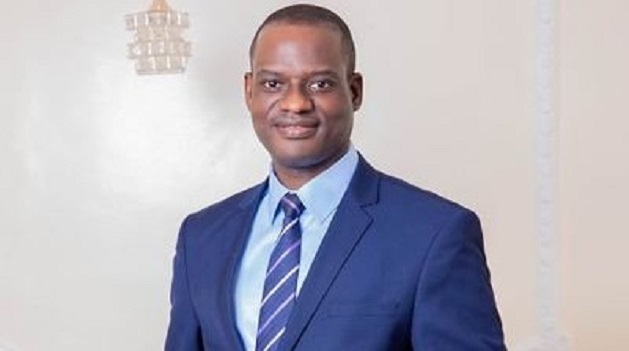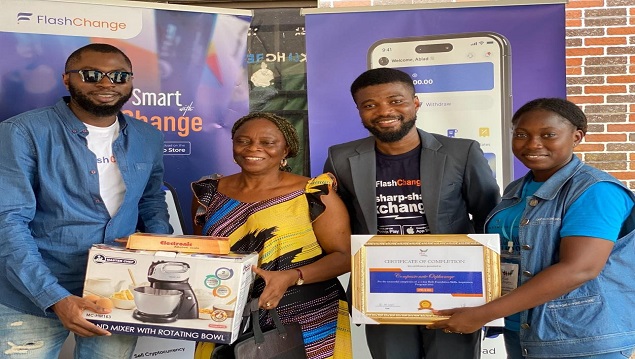General News
Making the Most of London 2012

My last assignment as a sports journalist was at the 2006 National Sports Festival (NSF) in Abeokuta and Ijebu Ode, Ogun State – the same year Germany hosted FIFA’s World Cup Finals. Six years is a pretty long time, and I was wondering how the London Games would go by without me putting a word.
But times have also changed. I moved from being a sports reporter to a technology writer, after a spell as Communications’ Consultant with one of the nation’s brightest firms in Lagos. But what do the Games of the XXX Olympiad hold in stock for humanity? Are Nigerians really in the mix for a better outing? What new technological innovations are we likely to experience with the London 2012 Games?
For starts, the London 2012 Games would be the most viewed programme on television in the history of humanity. Olympic officials estimate an incredible four billion people across the world would atleast watch one sports of the games through the 17 days of this summer.
That would double the figures of Beijing, China in 2008 where it was recorded that 1.3 billion Chinese (alone) watched the closing events. Jacques Rogge, president of the International Olympic Committee (IOC), noted then that it was the most watched event in human history.
“We had more broadcast coverage to more people, in more places than ever,” said Rogge during his closing news conference in the Chinese capital. Now, South Sudan would be added as a nation of people who watched the games this summer.
Each games come with its own peculiarity: broadcast innovations, marketing breakthroughs and entertainment values. The London 2012 Games are already awash with what it would bequeath mankind. Costs are mind-bugging as governments of host cities go all out to secure financing for the Games.
A BBC cost overview of the London 2012 Games shows why poor countries would never afford to host the Olympics. “On 15 March 2007 the government announced the budget for the Games had risen from £2.4 billion to £9.35 billion, although it said the cost of the Games would be £5.3 billion.”
So how did that work out? “New venues cost £3.1 billion – these include the Olympic Park at Stratford and the athletes’ village. £1.7 billion spent on regeneration and infrastructure. £600m spent on extra security – the government of David Cameron is already crossed with the private security firm contracted to provide security for the Games. The UK government had to call in over 3, 500 soldiers to help provide additional security.
“The government set aside £2.7 billion in a contingency fund in case costs rise further. The Olympics will have to pay an £840m tax bill. £390m will be spent on other costs, such as the Paralympics and community sport.
“Income: The government will provide £6 billion, with other funds coming from London council tax payers and the National Lottery. Further income will come from International Olympic
Committee TV and marketing deals (£560m); sponsorship and official suppliers (£450m); ticket revenues (£300m); licensing (£60m) and London Development Agency (£250m).
Other revenue sources for the Games will include: “9.6 million tickets for sale – 8 million for the Olympics and 1.6 million for the Paralympics.”
It shows the details LOCs take in planning and running the Games.
When Nigeria failed in its bid for the 2014 Commonwealth Games to Canada, I remember asking a colleague how we would have succeeded in hosting the Commonwealth Games, seeing that we made a mess of the 2003 All Africa Games in Abuja.
For the Beijing Games, one of America’s TV network, the National Broadcast Corporation (NBC), paid $894 million for the exclusive broadcast rights to the United States and it succeeded in generating more than $1 billion in advertising revenue.
The same cannot be said of Nigeria or any other African country – perhaps South Africa being an exception.
London 2012 would also present the most diverse mix of media coverage than at any other Olympics.
The internet will be awash with Olympic contents, especially on social media platforms like twitter, google+, facebook or youtube.
Viewers are expected to plant themselves through either of these platforms to follow the Olympic trends.
For the Nigerian viewer, it is still light years behind the technological age.
The irregular public electricity supply is nolonger news worthy for media outlets.
The promised Eldorado after the landing of two submarine fibres has not delivered the much hyped broadband freedom.
Download speed is still not faster than a snail crawl.
Watching internet TV is laborious and tasks the eyes and brain.
Transmission on the local terrestrial TV networks would not give accurate account, as most events won’t be broadcast live. Viewers would be limited to DTH options for the full Olympic experience.
But even then, I gloss over what would excite the Nigerian viewer to budget for extra fuel cost just to power his generator set to view any of the events?
The Nigerian contingent to the Games didn’t provide any gold medal excitements.
The qualification of the men’s basketball team was as exciting as it come – no medal prospect.
Perhaps one sport Nigerians might think of watching could be in the men canoeing where the Anglo-Nigeria Johny Adeyemi, 23, competes having eliminated the Beijing 2008 bronze medalist to get listed for London 2012.
Akinyemi’s feat over the much rated Benjamin Boukpeti, in canoe slalom, men’s kayak (K1) early this year makes him the most exciting individual Nigerian to watch-out.
Traditionally, track and field used to be a favourite medals prospect for Nigeria, but not anymore with several elite athletics defecting to European countries where there are better remunerations and affection for the athlete.
Last Friday, Benedict Efe, a Lagos based sports journalist was bemoaning the absence of the Nigerian football teams having watched Brazil made a mince-meat of the Cameroonian Lionesses.
But you can be sure that after London 2012, the government would go back to the drawing board for a better performance at the next Olympics!
General News
FG to Introduce New Tax Credit Scheme to Replace Pioneer Status Incentive

As part of Nigeria’s ongoing tax reform efforts, the federal government is proposing a new investment-driven incentive framework aimed at addressing long-standing inefficiencies in the current Pioneer Status Incentive (PSI).

The new scheme, known as the Economic Development Incentive (EDI), is designed to stimulate real economic activity by tying tax relief directly to verifiable investments.
This was the focus of a keynote address delivered by Taiwo Oyedele, Chairman of the Presidential Committee on Fiscal Policy and Tax Reforms, at BusinessDay’s Policy Intervention Series held on April 22 in Lagos.
According to Oyedele, a close review of the Pioneer Status Incentive revealed structural flaws that have undermined its effectiveness. “Once granted Pioneer Status,” he said, “companies may import goods classified as ‘pioneer products’ tax-free, effectively allowing them to operate without tax obligations—even with minimal value addition to the economy.”
He further noted that while the PSI was initially designed to encourage investment, it created loopholes and ambiguities. For example, businesses often benefit from extended tax relief even after the designated holiday period ends.
“The assets used during the Pioneer period are essentially frozen in time,” Oyedele explained. “They’re treated as if acquired after the incentive ends—meaning companies only start claiming deductions once the holiday period is over. This creates long-term tax advantages that go well beyond the policy’s original intent.”
He also pointed out that the PSI makes it difficult for the government to quantify revenue forgone and for investors to clearly assess the value of the incentive—undermining transparency on both sides.
The Economic Development Incentive
The proposed Economic Development Incentive is a departure from the one-size-fits-all model. Instead, it’s structured around priority sectors—primarily manufacturing, followed by services and infrastructure—that have strong multiplier effects on the economy.
Another key design feature is the introduction of minimum investment thresholds to ensure only scalable and impactful projects qualify. For instance, companies operating in capital-intensive sectors like utilities would need to invest at least N200 billion to be eligible for the tax credit.
“The EDI is about real impact,” Oyedele said. “It’s time-bound, sector-targeted, and tied to actual capital deployment—not just approval on paper.”
Unlike blanket tax holidays, the EDI grants companies a 5 percent annual tax credit over five years—totaling 25 percent of the value of their qualifying investment. Importantly, this is in addition to existing capital allowances, making the scheme particularly attractive to long-term investors.
Crucially, approval under the scheme does not mean the investment has already been made. It only confirms that the company has a verified plan. The incentive kicks in only after capital is actually deployed, and all investments are subject to inspection by the Industrial Inspectorate Division.
Oyedele broke down how the system works using practical examples:
If a company invests N10 billion in Year 1, it earns a N500 million tax credit each year for five years. If an additional N5 billion is invested in Year 2, that new investment begins its own five-year 5 percent cycle—N250 million annually until Year 6.
If the company continues investing progressively, each round of investment starts a new five-year cycle of tax credits, potentially extending the benefit period up to 10 years.
For instance, if a business has a N15 million tax liability in a given year and applies N25 million in tax credits, its liability is wiped out entirely, with the N10 million balance rolled over to subsequent years.
However, there’s a catch: if a company fails to follow through on its investment plan or halts capital deployment, unused credits are forfeited. This accountability mechanism ensures that only consistent and credible investments are rewarded.
General News
FlashChange Partners Ruth Foundation to Empower Vulnerable Children in Alimosho with Skill Acquisition

In an inspiring initiative to uplift the next generation, FlashChange and Ruth Foundation have successfully implemented the “Orphanage Skill Acquisition Assembly 2.0 program,” a skills empowerment program for vulnerable children in Alimosho, Local Government Area of Lagos state.

The five-day programme, which began on Monday, April 14, was created to equip vulnerable children aged 4 to 18 years with essential life skills such as financial literacy, fashion design, photography, creative arts, cooking, and leadership development
Speaking at the closing ceremony of this year’s edition of the programme, the Chief Operating Officer, Flashchange, Olamide Ajibola said, “We are delighted to be part of this life-changing initiative.
“At FlashChange, we believe that children are the heartbeat of every community, by investing in their development today, we are not just shaping the future of individuals but nurturing future leaders, creators, and change-makers that would make a positive contribution to the growth and development of the society in the near future.”
“Initiatives of this nature gladdens our heart and we are open and willing to participate in them at any time. In the coming months, we hope to do more in that area as our own little way of improving society. This is in line with our CSR pillars, which include human capital development.”
Ajibola appreciated the benefitting children for accepting to be part of the life changing training which has the capacity to catapult them to a brighter future. The facilitators were also commended for impacting the children with the skills and knowledge to help shape their lives.
The founder Ruth Foundation, Itunuoluwa Ruth Da-Silva, in her remarks, expressed the foundation’s deepest appreciation to partnering organizations like FlashChange for believing in the vision and throwing their full weight behind it.
She said, “It will interest you to know that 153 vulnerable children benefitted from the Orphanage Skill Acquisition Assembly 2.0 programme and the training ran simultaneously at Compassionate Orphanage home; Precious Pearl Orphanage; Little Saints Orphanage and House of Mercy Orphanage respectively. Providing the children access to knowledge and skills early in life to create a ripple effect that can transform the entire community.”
The Chief Marketing Officer, FlashChange Jesujoba Ojelabi commended Ruth foundation for the initiative and urged the children to take the skills learnt seriously, as it has the capacity to change their lives for good.
He said, “As a company, we would be proud to lend our support to the foundation whenever we are called upon to do so in the future. My candid advice to you children would be this, to be great ambassadors of this initiative, you need to continuously put to practice the skills and knowledge you have acquired from the programme. We are indeed proud of you all and the success stories recorded so far.”
To support the continuous development of the children the following items were donated; electric sewing machine, cake mixer; packs of Yeye yarn, packs of pins, some stitch markers, scissors, measuring scale, make-up kit box filled with make-up tools among several others.
FlashChange and Ruth Foundation therefore urge community leaders, government organizations, private sector partners, and stakeholders to support programmes of this nature aimed at equipping children with the skills they need to thrive in a world that is evolving quickly.
General News
EFCC Clarifies SCUML Certificate Misuse amid CBEX Ponzi Scheme Scandal

Economic and Financial Crimes Commission, EFCC, has dismissed the claims that the defunct digital asset trading platform, CBEX, was registered with its Special Control Unit against Money Laundering, SCUML.

However, EFCC stated that ST Technologies and not CBEX registered with SCUML, saying that the certificate didn’t imply clearance by the Commission.
The clarification comes after Lesley Kessy Oviritsa, one of the victims of the CBEX Ponzi Scheme said she fell prey to CBEX after seeing and verifying its CAC and SCUML Certificate.
Oviritsa claimed they had no reason to suspect foul play, especially since they claimed their SEC certificate would be ready by May 2025.
Nigeria CommunicationsWeek reported how CBEX swept over N1.3 trillion from their investors’ accounts.
In a post on its official handle on X on Monday, EFCC said the Commission is not a clearing house or regulatory authority of online businesses.
The post read: “SCUML Certificate Is Not CLEARANCE BY EFCC.
“ST Technologies (not CBEX) registered with the Special Control Unit against Money Laundering, SCUML in line with Section 17 of the Money Laundering, (Prevention & Prohibition) Act, 2022.
“Registration is a statutory requirement for all Designated Non-Financial Businesses and Professions, DNFBPs, in Nigeria in consonance with Nigeria’s Anti-Money Laundering/ Control of Financing Terrorism, AML/CFT regime.
“The EFCC is not a clearing house or regulatory authority of online businesses.
“But financial fraud of any kind is the remit of the Commission, and it is committed to ensuring justice for victims of the CBEX scam.”

 Telecom3 days ago
Telecom3 days agoMTN Nigeria Takes Broadband Services to the Next Level with FibreX Launch

 Telecom2 days ago
Telecom2 days agoDigital Transformation Remains Africa’s Gateway to Economic Advancement – Adumike

 News3 days ago
News3 days agoSERAP Files Lawsuit Against NBC Over Ban on Eedris Abdulkareem’s Protest Song Tell Your Papa

 Telecom2 days ago
Telecom2 days agoPAFON 2.0: Experts Discuss Pathways to Boost Financial Inclusion in Nigeria

 General News2 days ago
General News2 days agoEFCC Clarifies SCUML Certificate Misuse amid CBEX Ponzi Scheme Scandal

 E-Financial2 days ago
E-Financial2 days agoCBN, NGX Group Defend Economic Reforms at Nasdaq

 E-Financial3 days ago
E-Financial3 days agoFCMB Group Redefines Corporate Storytelling with The Power Of The Group TVC

 Telecom20 hours ago
Telecom20 hours agoMTN Nigeria Faces Class Action Lawsuit over Alleged Data Mismanagement
























